Talent, Event & Project Cards
"Open StarTer Village" leverages a recruiting system by using Talent cards so players can collectively tackle natural disasters and human-made crises (Event cards) and subsequently complete projects (Project cards) to earn victory points! Will you go at it alone or work with collaborators to solve these societal issues and promote civic engagement? The choice is yours, players decide!
Project Card | Never-ending Cases
A total of 39 project cards are available throughout the game, including open government, data, and source code projects. Players can choose projects based on their interests and abilities and then complete them through strategic resource allocation. From daily personal life challenges to significant environmental policy formulation, solutions lie within the collective and collaborative spirit. Through the design of open-source Project Cards, you can experience the diversity of tech tools used in these real-world projects and how solutions were achieved collaboratively. Each Project Card has different levels of difficulty depending on the project scope, which will earn you varying victory points once completed.
Card Introduction
Project Card | Open Government
Democracy OS
Developed by the Argentinian NGO "Democracia En Red”, Democracy OS is an app for democratic participation that aims to “democratize democracy”. The app allows users to engage in participatory budgeting, policy discussions, and voting simulations, as well as to express their opinions on certain policies and acquire additional information.
vTaiwan
vTaiwan is a platform that allows the public to express their opinions on Taiwanese laws. Legislative and administrative bodies are required to collate the opinions recorded on this platform, include them in the discussion of the policy, and state how the policy reflects the opinion stated or why public opinion was not considered. The platform aims to offer an online open space where stakeholders of a policy can openly discuss with each other and present different points of views. This platform encourages deeper discussion of the topic and promote mutual understanding between civil society and the government.
Nullfull’s foodmap
Nullfull’s foodmap uses open data to uncover which restaurants South Korea’s legislators are most likely to use national funding to patronize. Although under South Korea's Freedom of Information Act the public is able to request legislators to release data relating to their budgeting and donations, this information is often released in image files by the national assembly, making it difficult to actually use. Nullfull took this image data, input it into a google spreadsheet at a hackathon, and then used the data related to food to create a map of legislators’ favorite restaurants. Most of the restaurants were luxurious and expensive. To make more people aware of how the government was frivolously spending public money, Nullfull later decided to visit many of these restaurants and take pictures of the food to let Korean people see where their money was being spent.
Digital Participatory Platform for Public Policy
In 2015, Taiwan’s National Development Council launched Join.gov.tw: a digiital public policy participatory platform. Through the platform, citizens are able to submit proposals regarding the policies or issues they care about. If their proposals receive 5000 supporters’ “yeses” in 60 days, authorities in charge are required to reply within 2 months. This platform thus has become a two-way communication channel between citizens and the government.
Get Taiwan in the OGP
The Open Government Partnership (OGP) was founded in 2011 to advocate transparency, participation, responsability and tolerance. Although Taiwan is not a member of OGP, the Legislative Yuan and the Exectuive Yuan still developed the "Open Parliament Action Plan" and the "Open Government National Action Plan" respectively in accordance with OGP guidelines.
Bribery Map of Taiwan
Developed by netizens on PTT, the Bribery Map of Taiwan was created by combining open data of confirmed bribery cases and Google Maps. The four maps collated by some netizens were later compiled by another netizen named Kiang. With his help, the Map which uncovers place where the bribery took place, what the offering for bribery was and how high the amount of the bribery was. The map allows users to see how much money their votes are worth.
Citizen Judges
Not only can openness be brought to Taiwan’s Executive Yuan and the Legislative Yuan, law courts can also become open to public participation! In 2020, the Legislative Yuan passed the Citizen Judge Act, which into effect in 2023. According to the Act, collegial courts for the cases listed in the Act will consist of 6 citizen judges and 3 jduges. Citizens who meet the requirements will be randomly selected to participate in trail proceedings and the formation of final judgments. The Act aims to facilitate impartiality of the justice system with legal expertise of judges and by taking people’s expectations on how to achieve social justice into consideration.
Real Price Registration of House Transaction of Each Property
In the past, actual house prices were only revealed on the basis of the price of each area consisting of a batch of 30 house numbers instead of each house number. In order to make the housing market more transparent, the Ministry of the Interior passed the "Real Price 2.0" amendment, which reveals the price, the house number, and the parcel number of each successful transaction, providing comprehensive information to future buyers.
Government's Open Data Platform
In order to enable citizens to monitor the government and apply open data, Taiwan’s Executive Yuan began promoting open data in 2012. People can use most of open data for free except for some special cases. A platform compiling civic, economic and other types of open government data was thus created, and the data were released in a variety of formats, making them easier for citizens to use.
The Initiative to Amend Political Donation Acts
In 2014, with a crowdsourcing model, Ronny Wang, a participant in the g0v community, collaborated with other civil society groups on the "Open Political Donation" project, which hoped to make political donation more transparent through legal amendments. After several attempts, the effort went silent for a while. In 2017, Mirror Media produced a report on open data, which received a lot of attention and enabled this issue to be visable again. Finally, in 2018, the Political Donations Act was ammended and since then, it requires every candidate to publish the full text of their financial reports online.
Public Representative Voter Guide
In order to provide citizens with more information before they vote, Johnny Lo started producing "Legislator Voting Guide" and "City and Country Councilor Voter Guide" in 2013, which compiles data on the legal proposals, voting recording and participation in hearings of candidates in every district up until 2018. In 2019, a group of hackers from g0v expanded this idea and created "Voting Guide for the 2019 Election," which improved the work flow and interface for users and provided more information.
Livestream of Parliament
In 2009, civil society groups in Taiwan began calling for allowing the people to monitor and supervise legislative discussion in parliament. After many years of trial and discussion, the Legislative Yuan established their own channel "Parliamentary TV" in 2016, with the hopes that the legislative procedure will become more transparent.
Data Opener
Even if government data has been open for a number of years, citizens are still often unable to access it. The "Data Opener" tool, created by a team of volunteers, analyzes the most common reasons why data requests are denied by the government and modularizes the application process. By doing so, the data helper makes it easier to apply while helping the government understand the importance of open data.
Project Card | Open Data
Common Voice
Common Voice is an open-source project developed by Mozilla. Recordings provided by contributors around the world are released to the public domain under CC0. This free and open speech database includes every language, which allows everyone to use and develop speech-related technology.
Find My Bus
The prototype of this project is "Bus Tracker Taipei". With data from Taipei and New Taipei City governments and the Public Transport Data eXchange platform established by Taiwan’s Ministry of Transportation and Communications, this app allows users to see bus routes, bus arrival times, as well as the transfer information of airport bus, Taiwan High Speed Rail, Taiwan Railway, YouBike, and other means of public transport. This is one of the best examples of public uses of government open data since 2013.
Mask Map
This app is one of the projects of Taiwan's open source community, g0v. In response to the Coronavirus pandemic that began in 2020, the Taiwanese government adopted a name-based mask-rationing policy to prevent panic buying. However, people didn’t know which pharmacy still had sufficient masks in stock. To address that problem, g0v members established this app by connecting real-time mask stock data from the government-contracted pharmacies, locations of pharmacies and convenient stores that sold masks, and all the necessary information with google map, thereby allowing the public to know the real time amount of mask stock across Taiwan.
Taiwan National Treasure
This is one of the projects that received the "Civic Technology Startup Grant" sponsored by the g0v community. With photography software and an online database system, this project calls on volunteers to go to the U.S. Archives and take pictures of historical materials related to Taiwan. The online open database of these files is free for people to use. As of March 2020, the cumulative number of the digitized files has exceeded 200,000.
To Urge Authoritarian Countries to Adopt Open Data Act
Here are resources players can use for this task: laws as such requiring that governments should enact laws based on the four principles of openness, "easy to access, machine-readable, in an open format, and released under an open license or open usage method." Government ministries should open up internal information for the general public and enterprises to effectively add value to applications. For example, the landform map opened by Taiwan's Ministry of the Interior is used to draw the map that shows the relation between telecommunication signal and landform.
Scan and buy
"Developed from the ""Thau Bing"" project, this app facilitates the release of enviromental data, tracks data related to corporations' gas and liquid waste and other forms of pollution, and detects whether they have a record of illegal emissions. The goals are to raise public awareness regarding which businesses breaking the law, and to encourage the government to improve environmental protection laws and measures to ensure corporations compliance. In the meantime, the app also enhances civic participation and helps citizens to be in control of every purchase. "
Qollie
This is a Chrome browser plug-in that allows users to simultaneously view evaluations of companies, job vacancies, and labor law violation records on the webpages of major job hunting platforms. The plug-in’s automatically-loading comment section allows to leave comments and view previous comments on the company’s recruitment page. This plug-in hopes to create a transperant job hunting ecosystem where labor and management can equally obtain sufficient and authentic information.
LASS (Location Aware Sensing System)
LASS (Location Aware Sensing System) is a comprehensive open-source aware sensing online system, which includes sensors, internet systems, analysis of big data and user interfaces. The system can monitor air and water quality in real time, and all the data measured by its instruments can be accessed by the public.
Cofacts
As one of the projects of Taiwan's open source community, Cofacts established a real time fact-check platform by inviting the general public to collaborate, and applying the technology of chatbot, thereby providing a massive amount of information and reference as well as the technologic support for fact-checking to the public. Cofacts also releases its data that accumulated each time it fact-checks a piece of fake news under CC license. The platform also releases its source code so that people can use it by following its licenses.
MOEdic
As one of the projects of g0v, MOEdic is a digital Taiwanese-language dictionary. The entries are mostly derived from the "Revised Mandarin Chinese Dictionary by Taiwan’s Ministry of Education." In addition to 160,000 entries in Mandarin Chinese, there are 20,000 entries in Taiwanese Hokkien and 14,000 entries in Hakka. Translations in Chinese, English, French, and German are also provided.
Disfactory
Disfactory is a project developed by Citizens of the Earth, Taiwan and g0v. Any time citizens report cases of suspected illegal factories on farmland to the system, the data will be forwarded to the competent authority. Citizens stay anonymous but still can keep up with the updates of their reporting and urge the government to regulate illegal factories. The goals of this system are to protect citizens' rights, the environment and food safety through democracy and the rule of law.
Open Street Map
The concept of this project inspired by Wikipedia, is to construct a collaborative online map that can be freely drawn and used. The goal is to create a world map with free content that can be edited by everyone. In the beginning, the map was often drawn according to the information that contributors obtained through on-site investigation by using GPS track records, laptops, and many kinds of equipments. Later, aerial and satellite imagery technology also became an important source of data.
Open GLAM
The Open GLAM project was initiated by the Open Knowledge Foundation. It assists cultural institutions (such as art galleries, libraries, archives, and museums) in digitalizing and opening up content and materials through workshops, guidelines, documents, and working groups, hoping to build shared resources of cultural assets.
Project Card | Open Source
BigBlueButton
BBB (BigBlueButton) is an open-source software, which fulfills distance learning and working through audio/video meetings. It can integrate itself with multiple learning systems, provide functions such as text messaging, group discussion, notes sharing and a digital whiteboard, and be executed on browsers directly. It's the current solution recommended by the French government to educational organizations and public sectors for organizing online meetings.
Firefox
Mozilla Firefox, a browser with free and open source code, was created and launched by the Mozilla Foundation and its subsidiary in 2004. The browser’s predecessor was the independent "Phoenix Browser" also created by the Mozilla community.
Inkscape
Inkscape is an open-source vector graphics editor released under the terms of the GNU General Public License. In addition to graphics rendering, it can also be used for three-dimensional rendering and additional color services. It currently supports 27 languages and multiple operating systems. The software uses Scalable Vector Graphics (SVG) as a default, and can import and export a variety of file formats
LibreOffice
LibreOffice is a free and open-source office suite, whose initial version was developed by The Document Foundation in 2010. This suite includes software for word processing, creating and editing of spreadsheets, slideshows, diagrams and graphics, database management, composing mathematical formulae, etc., and it supports the OpenDocument/ODF format.
Linux Kernel
Linux Kernel is an open-source operating system kernel that is similar to Unix. In 1991, Finnish hacker Linus Torvalds created Linux kernel and started the Linux kernel project. More than 12,000 engineers have dedicated to this project up until now.
Notepad++
The author/manager of Notepad++ is a Taiwanese. Licensed under General Public License, this free and open-source software supports multiple languages. Besides creating text files, it also serves as a programming editor. Notepad++ not only supports customized hotkeys but also provides functions such as syntax highlighting, code folding and built-in macro recording and replaying. In addition, it supports multiple plug-ins.
OCF Lab
OCF Lab is a news platform founded by the Open Culture Foundation. It focuses on five core issues: open source code, open government, open data, digital rights, and civic technology. Through collecting, translating and covering stories on technological affairs at home and abroad in its biweekly reports, OCF Lab has become an important force promoting social progress.
OPass
OPass was originally designed as a registration app for the Taiwan Open Source Information Community Seminar. It has been used many times at SITCON (Students’ Information Technology Conference) and COSCUP (Conference for Open Source Coders, Users & Promoters). In order to meet the needs of various events, the integration plan was launched and OPass was thereby born, which continues to optimize sign-up experiences and provides first-hand information of various annual meetings.
Open Hack Farm
"Open Hack Farm" is a community which committs to developing open-source software and hardware, applying open data to agriculture and promoting enviromental friendly farming reusage with technology and scientific methods. Through researching and developing environmental sensors to collect data, Open Hack Farm has created a digital Agricultural Calendar through data analysis to help farmers achieve friendly farming. They have also developed a system to trace the production process of the ingredients of food and to connect consumers and producers quickly with mobile devices.
Public Money Public Code
"Public Money Public Code" is an initiative launched by the "Free Software Foundation Europe (FSFE)" in 2017 which advocates that public digital services or systems built by governments and with public money must be released under an open-source license to ensure that new developments of those digital services and systems are not just repeats of existing ones and can facilitate collaboration, thereby allowing everyone to use it. The open letter of this initiative calls on the public to sign the petition, hoping that the system will be applied in all regions.
Get to Know Open-Source License
Licensing is an indispensable element for achieving open source. "Open License" allows copyright owners to retain only part of their rights, allowing their works to be used, modified and distributed freely and for unlimited purposes. The additional terms added on the license of an open license software must not violate the authorization terms of these basic principles of Open License. Common license terms for software code include MIT, GPL, etc., and since the content of each license is different, the scale of freedom of reuse is also different.
New Chewing
(New) Chewing is a smart, open-source phonetic input method for Chinese. As an expansion of the well-known "Chewing," which was launched in 1999, (new) Chewing is designed to be compatible to various operation systems and execution environments. It meets the requirements of many intelligent open soource phonetic input systems and has been widely used by traditional Chinese users. (New) Chewing features cross-platform interoperability. In addition to being able to operate on multiple systems, it also supports multiple input method architectures.
Tor Browser
Tor, whose name stands for "The Onion Router", is an open-source browser that enhances anonymity on the internet, which also encompasses the function of bypassing internet censorship. It encrypts users' data traffic, passing three Tor nodes as diversions before sending to the target webistes. The target websites wouldn't know the real source of users, and all the three Tor nodes wouldn't know the source and destination of the users at the same time, either, and that's how it achieves anonymity of internet transmission.
Talent Cards| Diverse Skills
To excel in any task, you need the right people with diverse skill sets! Just like any tech tools, software, or websites, they weren't made based on only codes. Open StarTer features 7 different talent cards, each contributing their unique expertise, perfectly addressing the diverse requirements of developing tech tools! Skills like content creation, graphic design, legal analysis, and programming are recruited based on player project needs! Recruit and gather your forces, all for the common good.
7 Different Talents. Contributors from Diverse Background
Public Servant

Engineer
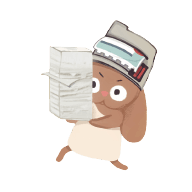
Copywriter
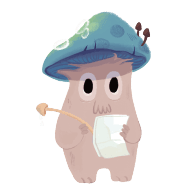
Legal Personnel
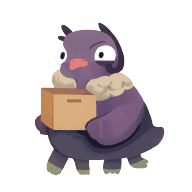
Artistic Designer
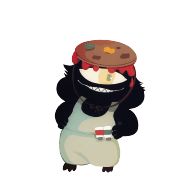
Marketing PR
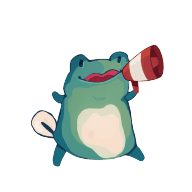
Advocator
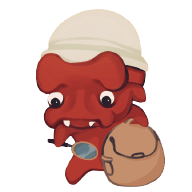
Event Cards| Disasters
A project isn't complete without a splash of frustration and some challenges. Draw an Event Card each round to add spice to your project progression, whether it's a shark biting through an undersea cable causing an internet blackout, a mysterious flu outbreak turning people into Otakus, or even a sudden show of support from officials for tech openness. Various obstacles and resources directly impact your planning and strategy. With 15 simulated event cards, players can expect different surprises (and disasters) on their path to project execution.
15 Events to Make Contributions More Interesting!
Github is Down
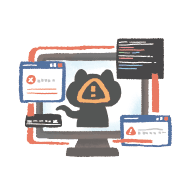
No one can take the “Initiator Contribution" in this round.
You're Released from Your Duties
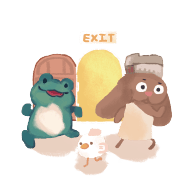
Discard all labor cards in the labor card section and replenish right away.
Old and Poor
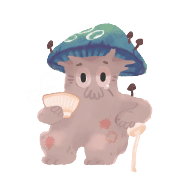
No one can take the “grow the Open Source Tree” in this round.
The Four Freedoms
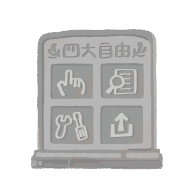
Add two labor card to the labor card section right away. The maximum number of cards in labor card section can be increased by 2. The last player has to choose two labor cards to discard at the end of this round.
Apologies to My Liver
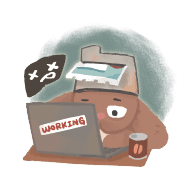
After recruiting talents at the first time in this round, every player can recruit once again without spending any action points.
The Digital Minster
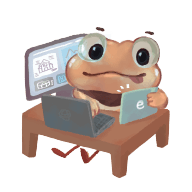
Move all contribution tokens on open government projects 1 square forward, but do not exceed the required number of contribution points of projects.
Side hustle
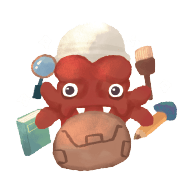
The first labor card played by every player when initiating a project or recruiting talents can be placed in any project, regardless of the labor requirement listed.
The end of the world!
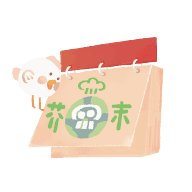
When this card is flipped, the game ends after this round. There is no need to use up all action points, and each unused action point equals 1 influence point.
Annual Financial Report
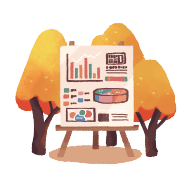
Initiators whose projects end in this round receive 2 extra influence points.
Unpaid Vacation

No one can take "Doin’ Overtime" in this round.
The Outbreak of Budweisavirus
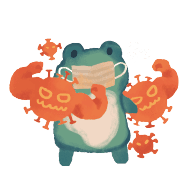
Move all the contribution tokens 1 square backward. Nothing happens if a token is just located at the first square of the contribution section.
The Carbonara Method
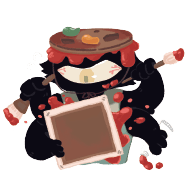
When any player take"Initiator Contribution" action in this round, that player can gain 1 more contribution point.
Subsisdies for the Youth
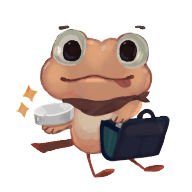
The player with the lowest influence points now can use a gray public action token. If there are more than one player with the lowest influence points, no one can use it.
A Shark Bites off the Submarine Cable
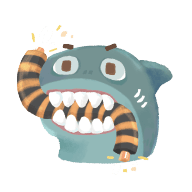
If there are two or more projects on the project board, no one can take the”Initiate a project” action in this round.